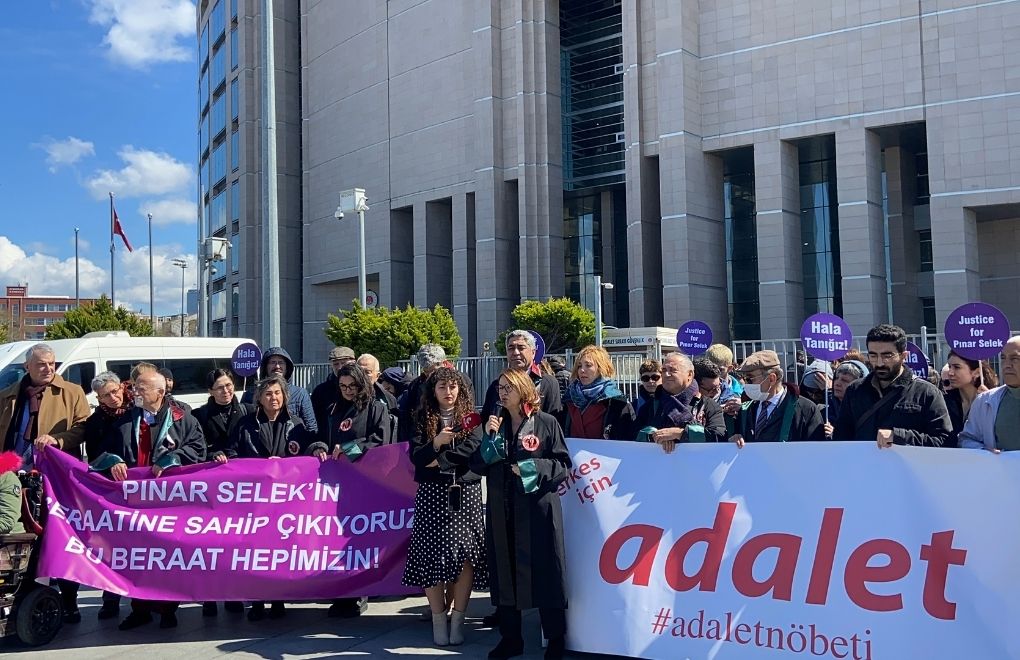A group of lawyers and rights activists held a justice watch in front of the İstanbul Courthouse on Thursday for author and sociologist Pınar Selek, who faces a retrial in absentia in a 25-year-long legal saga, the Bianet news website reported.
Turkey has accused Selek, 51, of planting a bomb in a 1998 explosion in İstanbul that killed seven people and, even after four acquittals, wants her on the stand again after issuing an international arrest warrant in January.
Selek’s retrial in absentia will begin at an İstanbul court on Friday.
The lawyers and activists who gathered to demand for justice for Selek said in a statement that the worst injustice that can be done to a person is to keep that person on trial for 25 years.
Selek’s father, Alp Selek who is also a lawyer, said his daughter’s trial began when he was 67 years old and that it still is not concluded today, when he’s 92.
“They have fraudulently prolonged the trial,” he said.
Selek, a feminist also known for her critical studies of the Kurdish conflict in Turkey and her work with street children, was first arrested in 1998 and accused of membership in the outlawed Kurdistan Workers’ Party (PKK), a Kurdish militant organization considered by Turkey and much of the international community to be a terrorist organization.
She was accused of bombing the popular Spice Bazaar in İstanbul, a charge she was informed of only “when I was already in my prison cell.”
But a witness who had testified that she had been part of the plot recanted his statement. An expert report concluded that the explosion had been an accident. Selek was freed in 2000, with the court citing a lack of evidence, but the trial was not over.
She moved to France and continued her sociology research, first in Strasbourg and then in Nice, and obtained French citizenship in 2017.
Kemal Aytaç, one of the lawyers who gathered in front of the İstanbul Courthouse in support of Selek, said it was no longer possible to describe the process against Selek as a legal one since it’s impossible to understand how a trial can last for 25 years despite the fact that Selek has been acquitted of the charges four times.
In an interview with Agence France-Presse last week in Nice, where she teaches sociology, Selek said, “You never get used to injustice.”
Although the successive trials, acquittals and retrials started well before President Recep Tayyip Erdoğan came to power, she said they “are an illustration of both the continuity of the repressive regime and the new tools of the regime.”
Selek also said she would not go to Turkey to face retrial.
She was acquitted in 2006, 2008 and 2011. But each time, the supreme court of appeals reversed the acquittals.
In 2012 a court in İstanbul decided on a retrial and, a year later, sentenced her to life in prison.
The appeals court overturned that verdict, too, and ordered another retrial, which ended with yet another acquittal in 2014.
Then, in June of last year, the Supreme Court of Appeals intervened again, reversing all previous acquittals.
An international arrest warrant was issued, and a new court date was set for March 31.
“I’m not going to my trial, I can’t go to Turkey,” she said in the interview. “I feel safe in France, my lawyers have advised me not to leave the territory.”
Selek said she hoped to win her own fight against the judiciary and also wished for Turkey to “enter a process of justice for everybody,” including prisoners.

